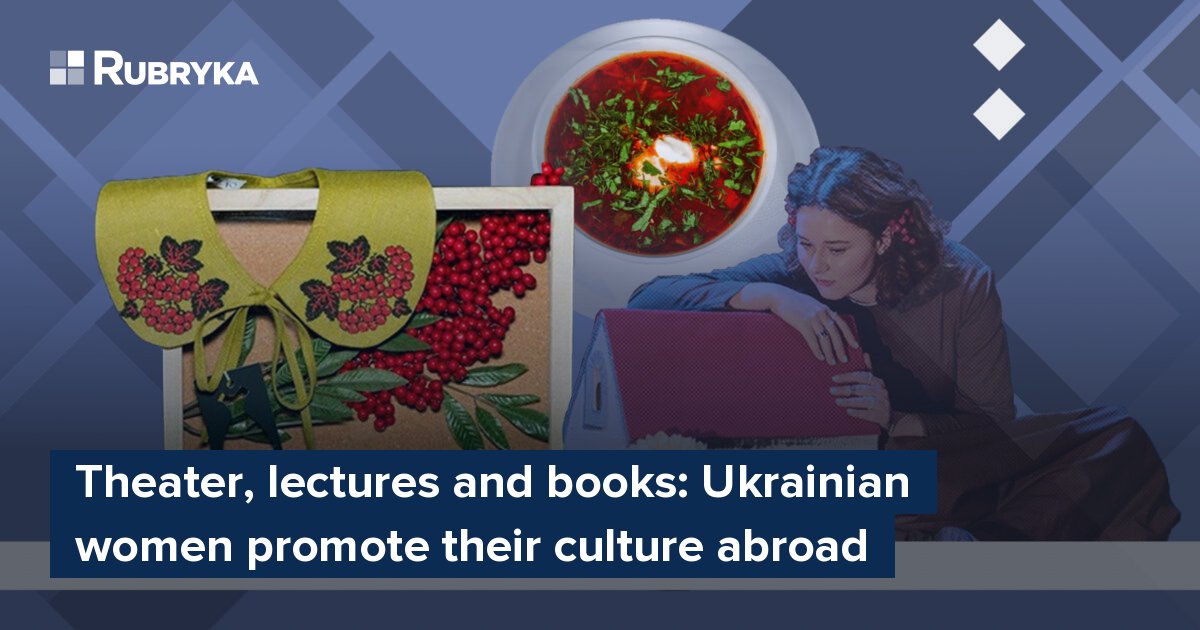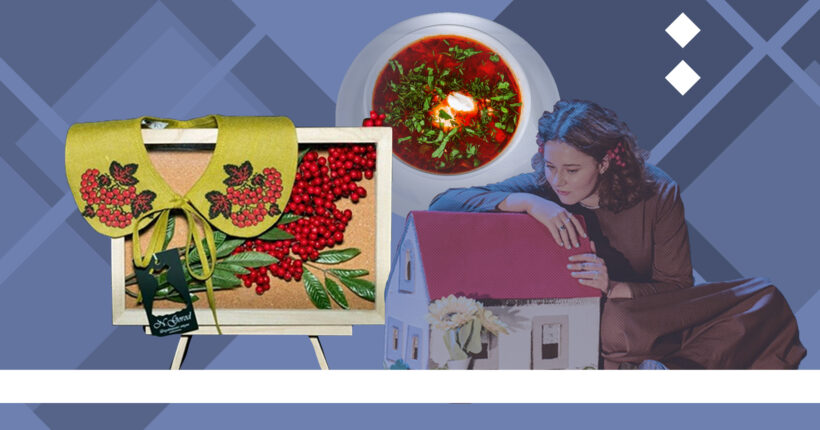
What is the problem?
Ukraine is currently fighting for freedom and independence on all fronts: from military to informational. One of the essential tasks today is to remain visible and loud in the international information space, to effectively oppose russian propaganda, which has taken deep roots in some places over the years of its spread, and to introduce foreigners to Ukraine. After all, the world must see Ukraine and what Ukrainians stand for — their freedom, language, and culture.
With the beginning of the full-scale invasion of russia, more than 14.5 million Ukrainians left Ukraine. These are primarily women and children. Adapting to life in an unfamiliar country is not easy. But despite this, Ukrainian women remain efficient and ambitious, and in addition to household tasks, they also perform this vital mission of helping Ukraine stay visible in other countries.
What is the solution?
Many have already found work abroad. Someone is volunteering, and someone is raising children — Ukraine's future. But at the same time, Ukrainian women are now introducing Ukraine to the world. They popularize Ukrainian traditions and culture, share, show, and help foreigners fall in love with what is valuable to Ukrainians.
Rubryka collected 10 cases of indomitable Ukrainian women promoting their culture worldwide.
How does it work?
1. Ukrainian painting master classes in Ireland 🇮🇪
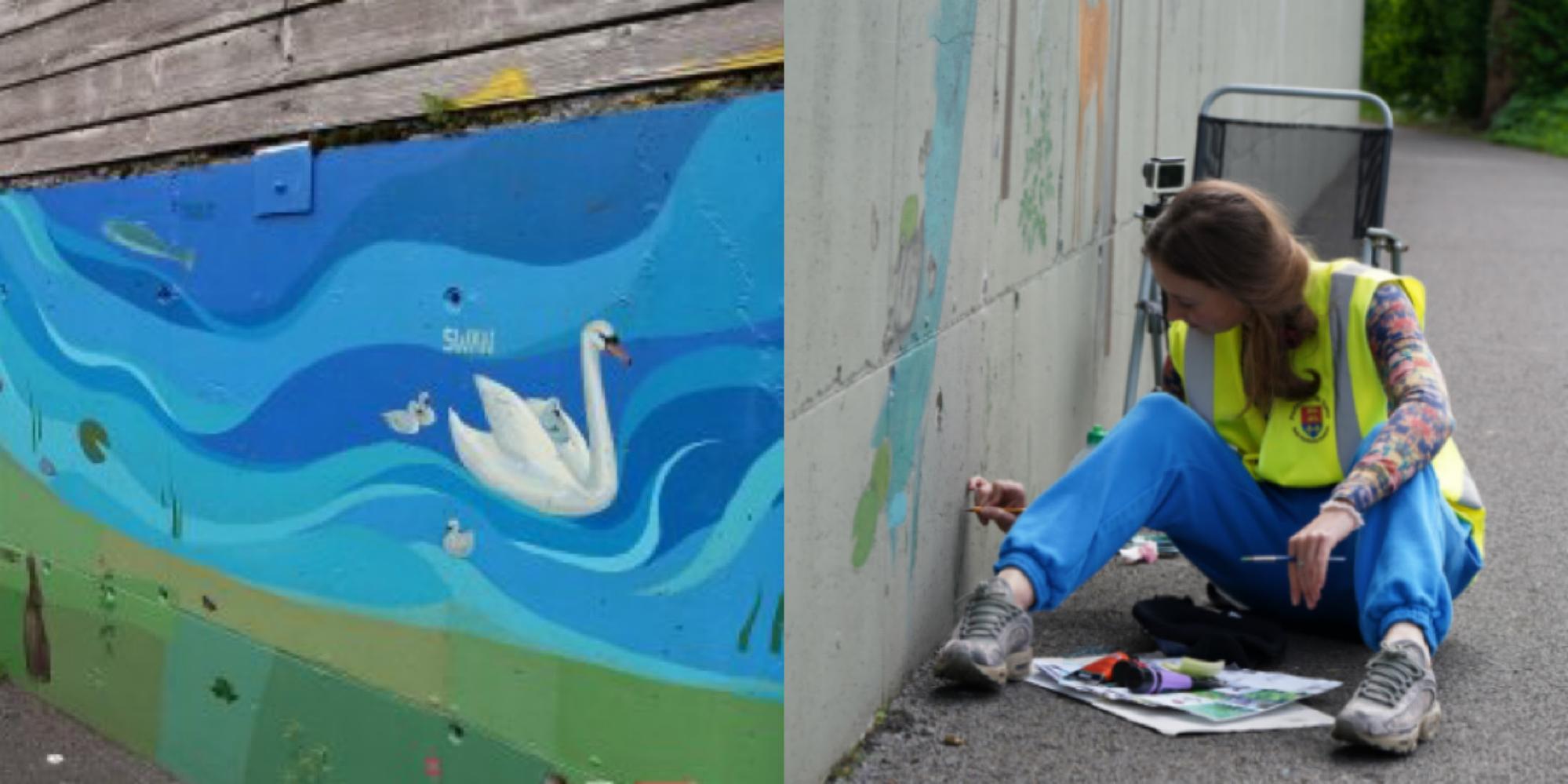
Before the war, Yana Koretska, an artist from the city of Kremenchuk in the Poltava region, worked in the association of children's and youth clubs, teaching children to draw. At the beginning of russia's full-scale aggression, the artist evacuated to Ireland. Yana is currently studying at the Royal Hibernian Academy of Arts, an art academy and art gallery in Dublin. Through her work, she introduces Irish people to Ukrainian culture.
"I am trying to popularize Ukrainian culture and introduce Irish people to Ukrainian folk art," says Koretska. In the summer, she held charity master classes on Ukrainian painting which invoked great interest among locals. The local volunteer association Tidy Towns, engaged in street cleaning and social work, invited the artist to the town of Portlish to create a mural for children on an educational theme. The idea of creating a mural with animals and plants resonated with Koretska because it is very optimistic and life-affirming. The artist worked on painting the 30-meter mural for almost five months! Koretska also participated in the international Christmas exhibition at Mason Hayes and Curran in Dublin. 50% of the sale of her painting went to the Ukrainian charity fund.
2. "Lisova Pisnya" in Portugal 🇵🇹
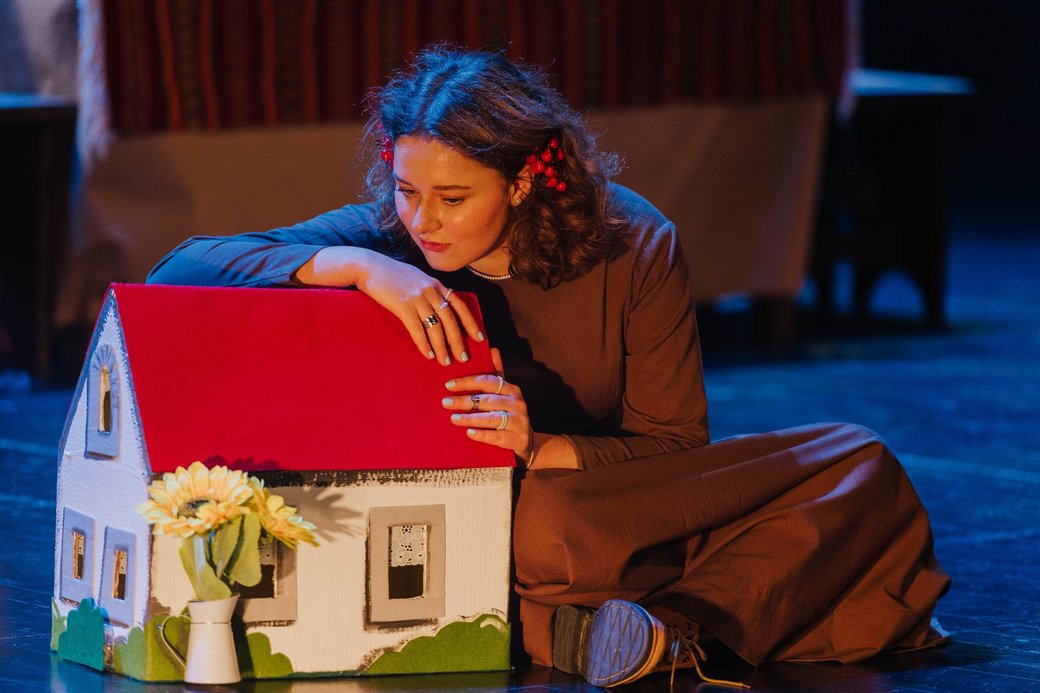
Director Olha Turutya-Prasolova staged a play based on famous Ukrainian writer Lesya Ukrainka's work in Portugal. The city of Braga's theater company and the National Union of Theater Actors of Ukraine launched the #stagehomeoftheworld project in the spring, and Olha became one of the participants. The director wanted to stage a play about the war, but the theater management was not interested. Instead, she was offered to produce a children's play, and the director chose "Lisova Pisnya," or the Forest Song.
"Portugal is very far from the war in Ukraine; the further it is, the fewer people understand what war is. There was a lot about Ukraine in the news in the beginning, but now there is much less… I had to tell about Ukraine at least somehow," the Ukrainian director explains her choice.
The audience received the performance very well. For Olha, such interest was a pleasant surprise: "We have a completely different mythology; the actors had to explain the origin of all Ukrainian mythological characters of the play — Mavka, Poterchata, Lisovyk, etc. I thought this story might be incomprehensible to them, but the children reacted enthusiastically, and the adults were touched."
And when the Ukrainian director met with the President of Portugal, Marcelo Rebelo de Sousa, Olha presented him with a cross-stitched badge with the coat of arms of Ukraine, which she made herself.
3. Embroidered viburnum in Japan 🇯🇵
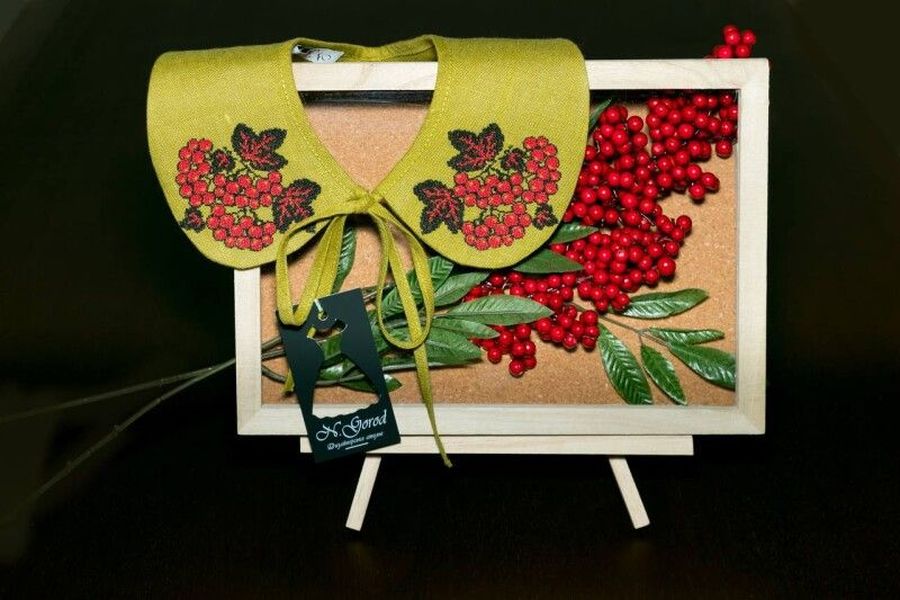
The resident of western Ukraine's city of Lutsk Nataliia Horod is learning to live on the other side of the world — in Japan, which sheltered her and her daughter from the war. Nataliia is a professional designer. She handed over self-made collars sent to her from home to one of the shops in Osaka, where the family now resides. The designer says that the Japanese were surprised when they learned that the embroidered red viburnum is both a symbol of Ukraine and a medicinal plant. However, it inspired them.
In Japan, Nataliia Horod has already been offered to work for one of the local brands. In addition, she was invited to participate in a fashion show in Tokyo. The designer is very proud of this: "Now even more Japanese will learn about Ukrainian clothes, embroidery — about Ukraine." Meanwhile, Horod is not just settling in a distant country: she is introducing the Japanese to Ukraine in various ways. The designer had the opportunity to speak at one of the Japanese higher education institutions, where she talked about Ukrainian writers and poets and recited poems.
4. A "wreath" in Great Britain 🇬🇧
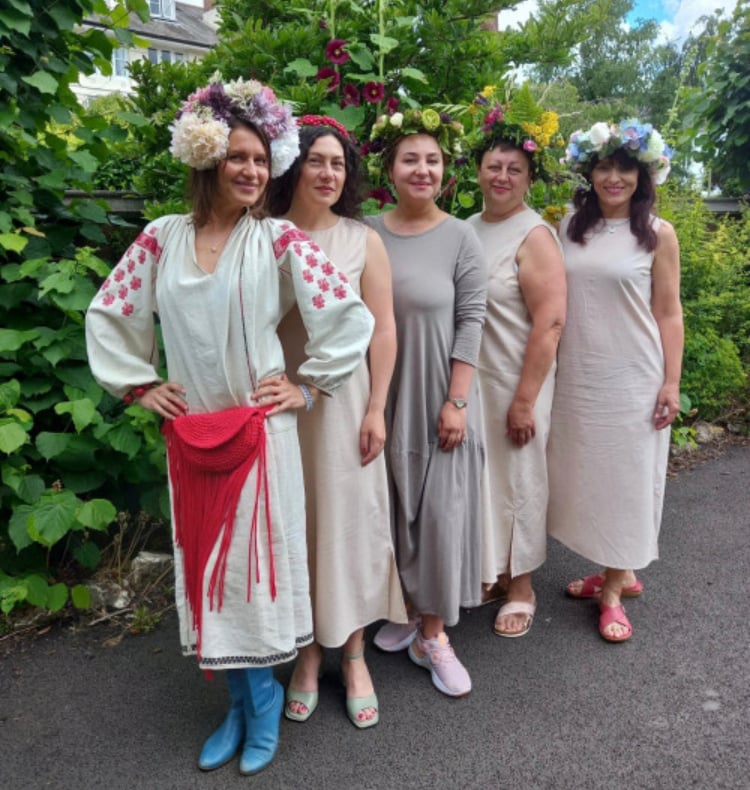
Choreographer and dancer Anna Paniotova and English teacher and social activist Olena Popova from Mariupol ended up in Great Britain together. There they met Olena Batovska, doctor of art studies and professor of the Kharkiv National University of Arts named after I.P. Kotlyarevsky, who created the "Kalyna" choir in Kharkiv even before the war. In Britain, the Ukrainians decided to join forces and create a team. They have already held several concerts in Winchester.
One of the concerts was organized jointly with the British Folk Music Club. The club organizers offered the women to show a Ukrainian folk dance, so the women prepared a joint choreography called "Wreath," where they managed to combine choreography and vocals.
At the concert, folk, classical, and modern music sounded from the stage. The funds raised during this event went to support Ukrainians. However, the most important result of the concert was the popularization of Ukrainian culture. "The hall was full. After the concert, people came up, thanked us, and took pictures. It was a real success," shared Olena Popova.
"We don't want to call Ukrainians who ended up in other countries refugees. We call ourselves guests from Ukraine. We are delighted that abroad we can benefit our own country and feel helpful thanks to such events," the newly formed creative team members say.
5. Ukrainian cuisine in the US 🇺🇸
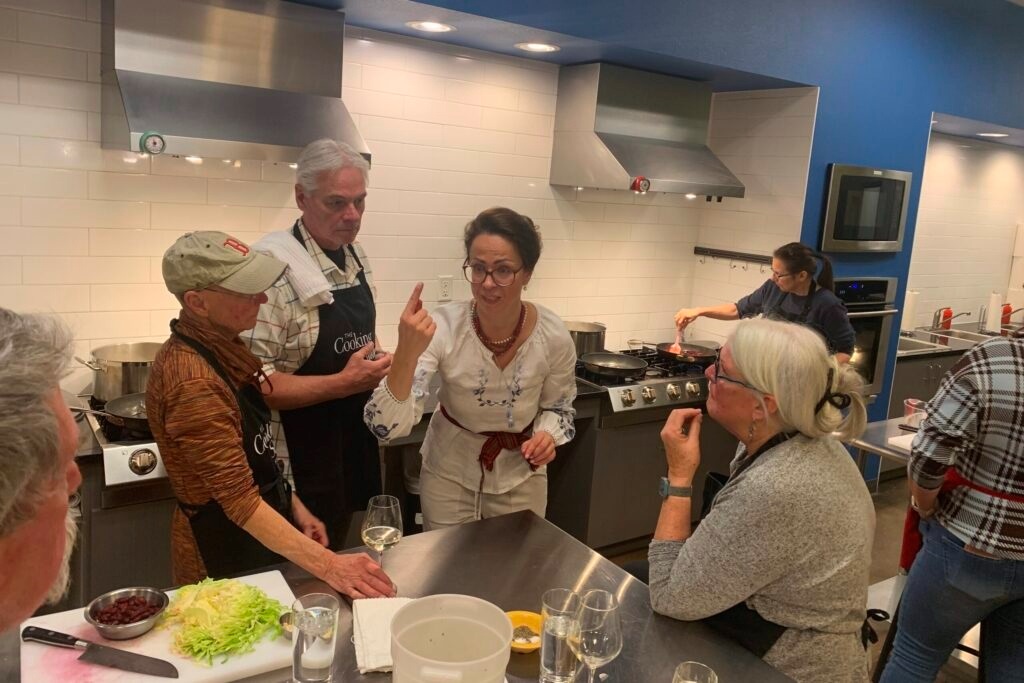
Tetiana Stratilat from Kyiv took up the popularization of Ukrainian cuisine. After the evacuation to the US, the chef did not have the right to work — she needed a work permit. So the woman decided to use the waiting time to her advantage.
Shortly after arriving in the US, Tetiana Stratilat learned about the non-profit organization "Ukrainians in Colorado," which has been providing humanitarian support to Ukraine since 2014, when russia started its aggression in the Ukrainian Donbas and since the full-scale invasion of russia, has been collecting money for war survivors. The Ukrainian's idea of charitable master classes found support in the organization, and at the end of August 2022, the Ukrainian Independence Day Festival was held at her suggestion. The woman taught the participants how to bake Ukrainian cookies during the event. Later, she organized another master class. And now the schedule of her classes is booked three months in advance.
"I really wanted to help my country," Stratilat shares. "My idea was to make a cooking course about Ukraine. I talk about Ukrainian traditions, how we set the table, and what the dishes symbolize. I add historical facts so that people can better understand my country."
6. Authentic borscht in the Czech Republic 🇨🇿
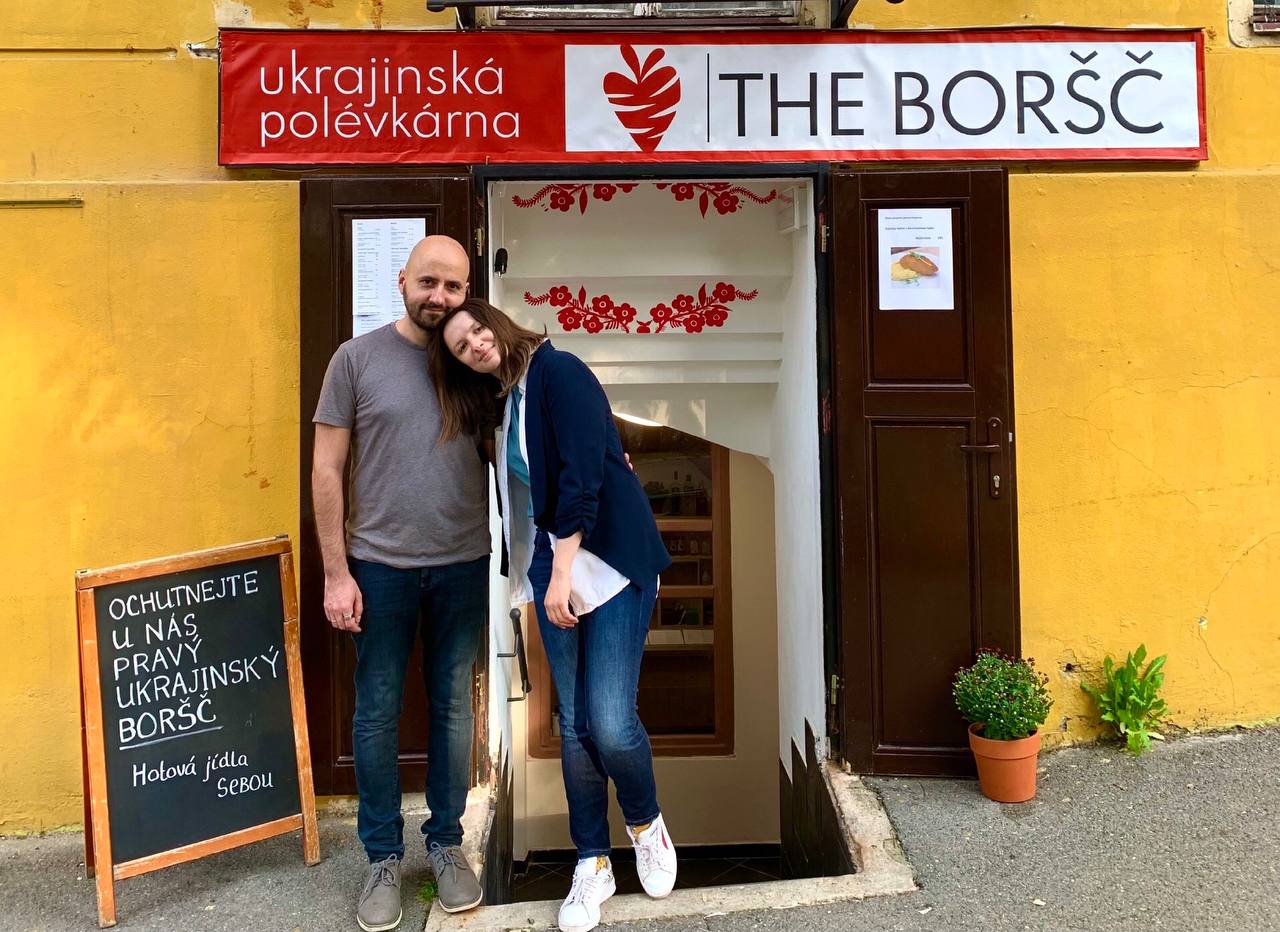
Nataliia Bas and Oleksandr Martynov from Kropyvnytskyi moved to Prague about five years ago. It was already the sixth year of russia's war against Ukraine, so Ukrainians wanted to present their native culture. At that time, several establishments in Prague served Ukrainian dishes, but they had, for example, shashlik on the menu next to potato pancakes. Ukrainians wanted to convey the original taste of their native cuisine precisely according to authentic Ukrainian recipes. And from February 24, 2022, the small restaurant of Ukrainian cuisine, The Boršč, became a hub for supporting Ukrainians.
With the start of a full-scale war, support for Ukraine increased, and many became interested in Ukrainian culture. So Czechs not only started booking tables several days in advance at The Boršč restaurant but also started coming and asking how they could support Ukraine. "We have already recorded the volunteers' contacts, and there are boxes from charitable funds," Oleksandr shares.
Gastronomy is really part of the country's cultural code. Only Ukrainians work in the Ukrainian restaurant — the owners explain that this is how they support compatriots abroad and can treat the establishment's guests to Ukrainian cuisine like at home.
7. Festival of Ukrainian fashion and culture in the Netherlands 🇳🇱
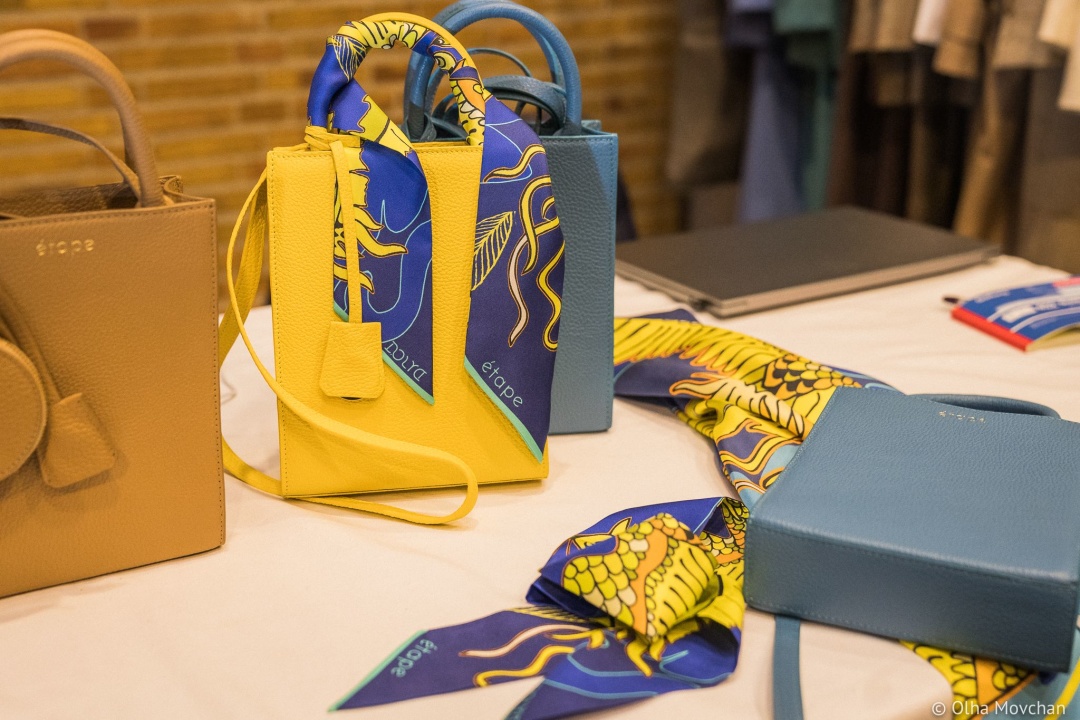
In February 2023, the Ukrainian Fashion and Culture Festival was held in Amsterdam (Netherlands), where visitors had the opportunity to meet Ukrainian fashion designers and try on and purchase products from their collections brought from Ukraine. More than 25 Ukrainian fashion brands presented their products at the Ukrainian festival.
The festival organizers, Mariia Vyshnivska and Anastasiia Melnyk, said that they had no sponsors or support from the state or funds; the festival was organized with their own funds. The event's main idea was to popularize Ukrainian producers and Ukrainian culture in the Netherlands.
"We wanted to show Ukraine from different angles, to present it as a country of talented people. Our mission is to make Europeans fall in love with the rich Ukrainian culture, so we chose the festival format — delicious cuisine, music, talented artists, and designers," says Anastasiia Melnyk.
The founders of the project say that it was also essential for them to bring together Ukrainians who miss their homes, to meet as if they were a big family, and also to "give space to talented Ukrainian designers whose production is still in Ukraine, they provide jobs, work on generators to the sound of sirens, but continue to create beauty in these terrible times.
8. Lectures about Ukraine in Poland 🇵🇱
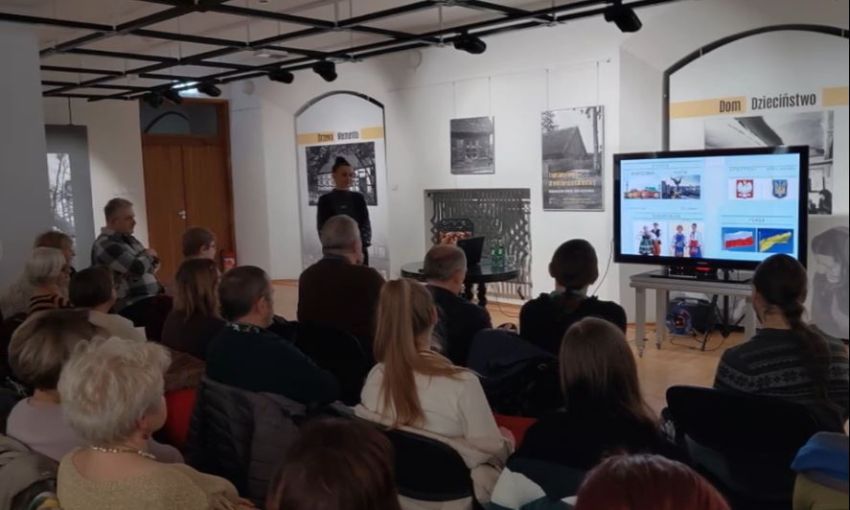
Ukrainians who have gone abroad try not to sit idly by but to help the people who received them to understand Ukraine and Ukrainians better. In particular, Yuliia Alifanova (Pavlus), a history teacher from Ukraine's southern city of Kherson, is actively involved in popularizing the history of Ukraine in Poland.
Because of the war, the Kherson teacher left for Poland and currently works at the Western Kashubian Museum, where she lectures on the history of Ukraine for its visitors.
"I am sharing my experience on how to popularize knowledge about Ukraine in the country where fate threw me because of the war. I held a meeting with the residents of the city of Bytow in Poland, where I talked about the formation of statehood in Ukraine, starting from ancient times, and drew parallels with how it happened in both our states," Yuliia Alifanova (Pavlus) said.
According to her, visitors were especially interested in the name Kyivan Rus' name origin and why russian invaders were encroaching on it.
9. Ukrainian media in Germany 🇩🇪
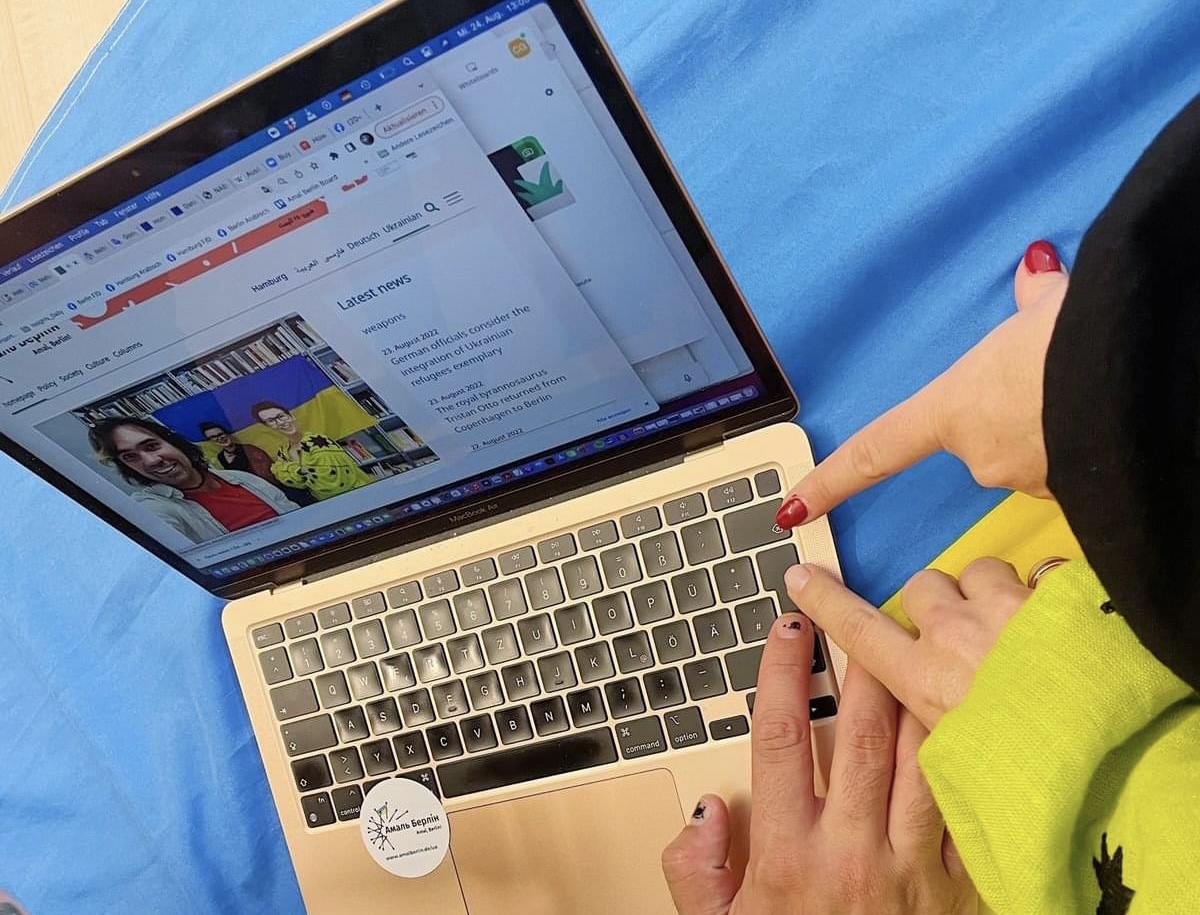
According to various estimates, up to 100,000 Ukrainians now live in Berlin and its surroundings and even have their own mass media. Amal Berlin is the only media in Germany on which representatives of the largest groups of refugees from wars and armed conflicts work together. More than 20 journalists from Syria, Afghanistan, Iran, and Ukraine create materials in Dari/Farsi, Arabic, and Ukrainian languages.
Anton Doroh, Darka Horova, and Nana Morozova — the journalists from Kyiv and Donetsk, who now live in Berlin because of the russian war in Ukraine, started to build the Ukrainian editorial office (Amal Berlin Ukraine). In addition to news, the media outlet regularly publishes columns by historians, articles about famous Ukrainians, Ukrainian places, the Ukrainian church, Ukrainian school, and the "Plast" scout organization in Berlin, focusing on the patriotic upbringing of youth. These materials are often "picked up" by the local mass media, telling Germany about Ukraine. Soon, the Ukrainian editorial office will open in Frankfurt am Main.
In general, the Ukrainian community in Berlin is really powerful. Thanks to its activities, a Ukrainian theater, a Ukrainian chapel, Ukrainian organizations, several Ukrainian-language media, and a Ukrainian restaurant are already operating in the city. Separate stands with Ukrainian books have appeared in Berlin bookstores, while libraries hold readings for Ukrainian children.
10. Ukrainian publishing house in Austria 🇦🇹
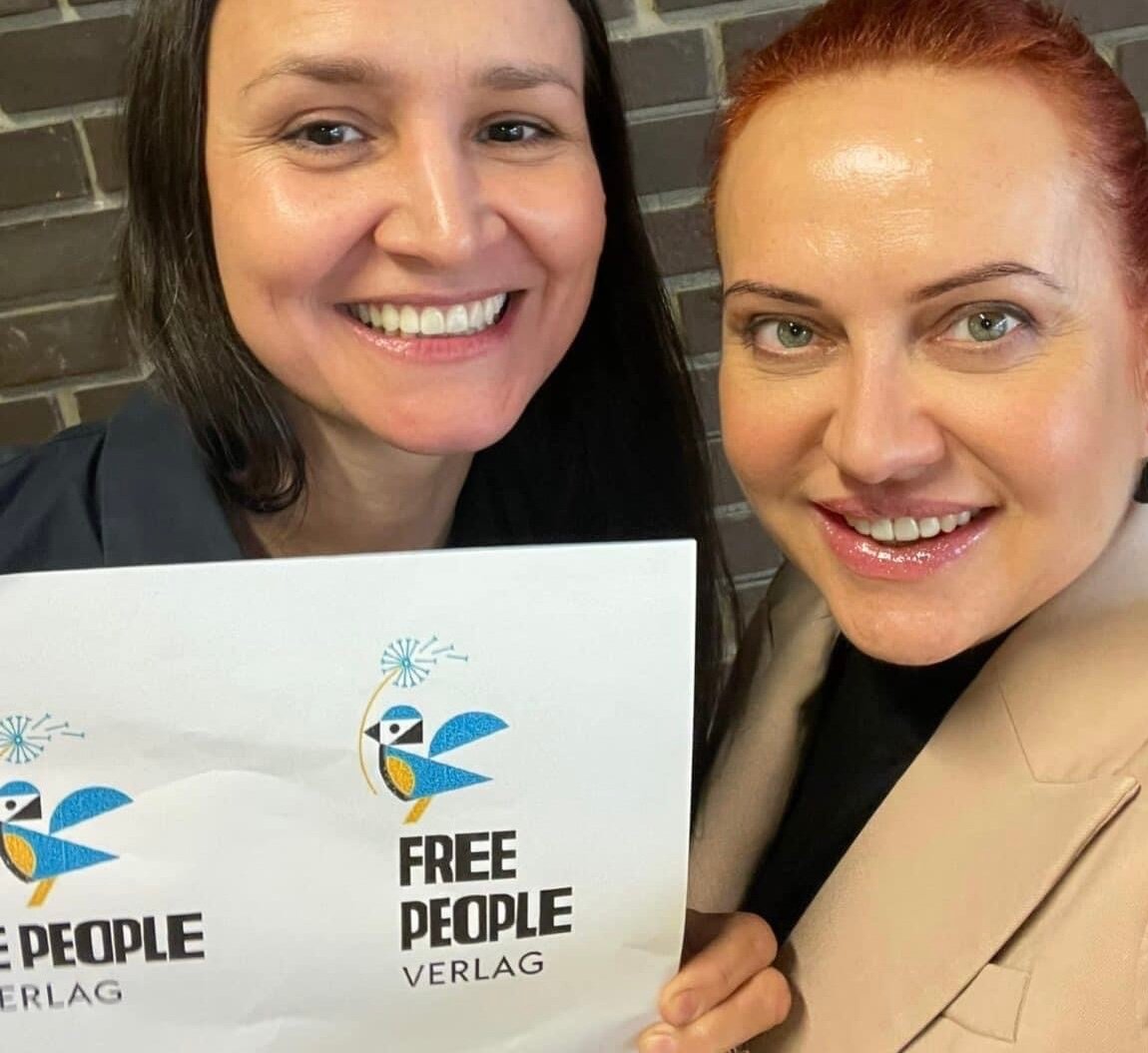
A Ukrainian publishing house was founded in Austria. Oleksandra Sayenko, the founder of the Ukrainian culture festival UStream/Ukrainische Kulturtage, and Iryna Hamaiko, the founder of the Free People Educational Hub, created the first Ukrainian publishing house, FREE PEOPLE Verlag, in Austria.
FREE PEOPLE Verlag will specialize in book, art, and music works and publish Ukrainian and German texts.
"A long time ago, more than ten years ago, I thought it would be good to have my own publishing house to publish what I lacked at the time on the book market — special, beautiful, and meaningful books, guides, and methodical materials for foreign language teachers. Then I dismissed this idea as a naive dream because the idea seemed too ambitious for a university teacher. It was necessary to change several professions and places of work, to return, finally, to teaching the German language, so that the old dream became a reality," Oleksandra Sayenko said.
And now the newly created publishing house will tell foreigners about Ukraine. The first book of the publishing house will be a fiction edition — a German translation of the libretto of the opera "Vyshyvaniy. The King of Ukraine" by Serhiy Zhadan.
Even more useful solutions!
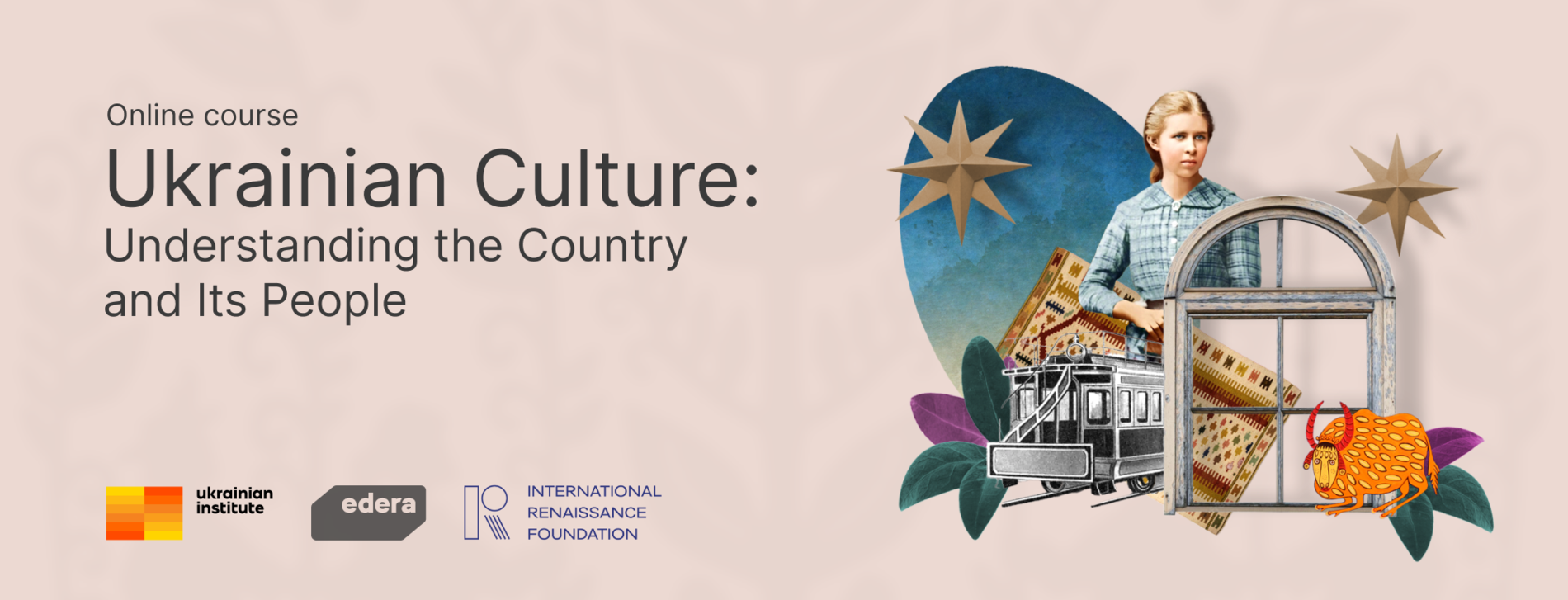
If you want to introduce your foreign friends to Ukrainian culture, the EdEra online education studio and the Ukrainian Institute have created a free English-language online course, "Ukrainian Culture: Understanding the Country and its People." The course tells about the peculiarities of Ukrainian culture and society formation.
During the course, ten Ukrainian experts present topics covering important aspects of Ukrainian culture:
- art during the war;
- historical conditions in which Ukrainian culture was formed;
- how different ethnic and national groups formed the Ukrainian space;
- how the traumatic experience of the 20th century affected Ukrainian cuisine.
The full list of topics can be viewed at the link.
In addition to the video lectures, the course provides students with a bibliography, texts, video links, and online resources that allow them to familiarize themselves more thoroughly with the topics of the lectures. Thanks to these materials, the students of the course will get a balanced knowledge of Ukrainian culture, identity, and society, understand the peculiarity of the Ukrainian community, and under what historical conditions Ukrainian culture was formed.
This material was created by the online media outlet Rubryka within the framework of the Ukrainian Rapid Response Fund program, implemented by IREX, with the support of the US State Department. The content is the sole responsibility of the Rubryka online media outlet and does not necessarily reflect the views of IREX or the US State Department.
Newsletter
Digest of the most interesting news: just about the main thing



